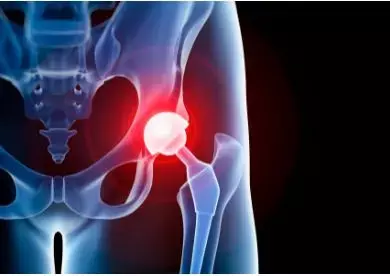- Home
- Medical news & Guidelines
- Anesthesiology
- Cardiology and CTVS
- Critical Care
- Dentistry
- Dermatology
- Diabetes and Endocrinology
- ENT
- Gastroenterology
- Medicine
- Nephrology
- Neurology
- Obstretics-Gynaecology
- Oncology
- Ophthalmology
- Orthopaedics
- Pediatrics-Neonatology
- Psychiatry
- Pulmonology
- Radiology
- Surgery
- Urology
- Laboratory Medicine
- Diet
- Nursing
- Paramedical
- Physiotherapy
- Health news
- Fact Check
- Bone Health Fact Check
- Brain Health Fact Check
- Cancer Related Fact Check
- Child Care Fact Check
- Dental and oral health fact check
- Diabetes and metabolic health fact check
- Diet and Nutrition Fact Check
- Eye and ENT Care Fact Check
- Fitness fact check
- Gut health fact check
- Heart health fact check
- Kidney health fact check
- Medical education fact check
- Men's health fact check
- Respiratory fact check
- Skin and hair care fact check
- Vaccine and Immunization fact check
- Women's health fact check
- AYUSH
- State News
- Andaman and Nicobar Islands
- Andhra Pradesh
- Arunachal Pradesh
- Assam
- Bihar
- Chandigarh
- Chattisgarh
- Dadra and Nagar Haveli
- Daman and Diu
- Delhi
- Goa
- Gujarat
- Haryana
- Himachal Pradesh
- Jammu & Kashmir
- Jharkhand
- Karnataka
- Kerala
- Ladakh
- Lakshadweep
- Madhya Pradesh
- Maharashtra
- Manipur
- Meghalaya
- Mizoram
- Nagaland
- Odisha
- Puducherry
- Punjab
- Rajasthan
- Sikkim
- Tamil Nadu
- Telangana
- Tripura
- Uttar Pradesh
- Uttrakhand
- West Bengal
- Medical Education
- Industry
6 weeks antibiotic regime not as good as 12 weeks regime in prosthetic joint infections: NEJM

Among patients with microbiologically confirmed prosthetic joint infections that were managed with standard surgical procedures, antibiotic therapy for 6 weeks was noted to be inferior to antibiotic therapy for 12 weeks and resulted in a higher percentage of patients with unfavorable outcomes. The recent findings have been published in New England Journal of Medicine.
The management of prosthetic joint infection usually consists of a combination of surgery and antimicrobial therapy. The appropriate duration of antimicrobial therapy for this indication remains unclear.
To have a clear understanding , the researchers performed an open-label, randomized, controlled, noninferiority trial to compare 6 weeks with 12 weeks of antibiotic therapy in patients with microbiologically confirmed prosthetic joint infection that had been managed with an appropriate surgical procedure. The primary outcome was persistent infection (defined as the persistence or recurrence of infection with the initial causative bacteria, with an antibiotic susceptibility pattern that was phenotypically indistinguishable from that at enrollment) within 2 years after the completion of antibiotic therapy. Noninferiority of 6 weeks of therapy to 12 weeks of therapy would be shown if the upper boundary of the 95% confidence interval for the absolute between-group difference (the value in the 6-week group minus the value in the 12-week group) in the percentage of patients with persistent infection within 2 years was not greater than 10 percentage points.
Results highlighted the following facts.
- A total of 410 patients from 28 French centers were randomly assigned to receive antibiotic therapy for 6 weeks (205 patients) or for 12 weeks (205 patients).
- Six patients who withdrew consent were not included in the analysis. In the main analysis, 20 patients who died during follow-up were excluded, and missing outcomes for 6 patients who were lost to follow-up were considered to be persistent infection.
- Persistent infection occurred in 35 of 193 patients (18.1%) in the 6-week group and in 18 of 191 patients (9.4%) in the 12-week group (risk difference, 8.7 percentage points; 95% confidence interval, 1.8 to 15.6); thus, noninferiority was not shown.
- Noninferiority was also not shown in the per-protocol and sensitivity analyses.
- They found no evidence of between-group differences in the percentage of patients with treatment failure due to a new infection, probable treatment failure, or serious adverse events.
"This trial showed that a shorter course of 6 weeks of antibiotic therapy did not meet the criterion for noninferiority to a longer course of 12 weeks in the treatment of prosthetic joint infection and resulted in unfavorable outcomes in a higher percentage of patients, most of whom had undergone debridement with implant retention. This difference in risk seemed to be less marked among the patients who had undergone one-stage or two-stage implant exchange, but this observation remains to be explored in a specific randomized trial."the team concluded.
For full article follow the link: DOI: 10.1056/NEJMoa2020198
Dr Satabdi Saha (BDS, MDS) is a practicing pediatric dentist with a keen interest in new medical researches and updates. She has completed her BDS from North Bengal Dental College ,Darjeeling. Then she went on to secure an ALL INDIA NEET PG rank and completed her MDS from the first dental college in the country – Dr R. Ahmed Dental College and Hospital. She is currently attached to The Marwari Relief Society Hospital as a consultant along with private practice of 2 years. She has published scientific papers in national and international journals. Her strong passion of sharing knowledge with the medical fraternity has motivated her to be a part of Medical Dialogues.
Dr Kamal Kant Kohli-MBBS, DTCD- a chest specialist with more than 30 years of practice and a flair for writing clinical articles, Dr Kamal Kant Kohli joined Medical Dialogues as a Chief Editor of Medical News. Besides writing articles, as an editor, he proofreads and verifies all the medical content published on Medical Dialogues including those coming from journals, studies,medical conferences,guidelines etc. Email: drkohli@medicaldialogues.in. Contact no. 011-43720751


